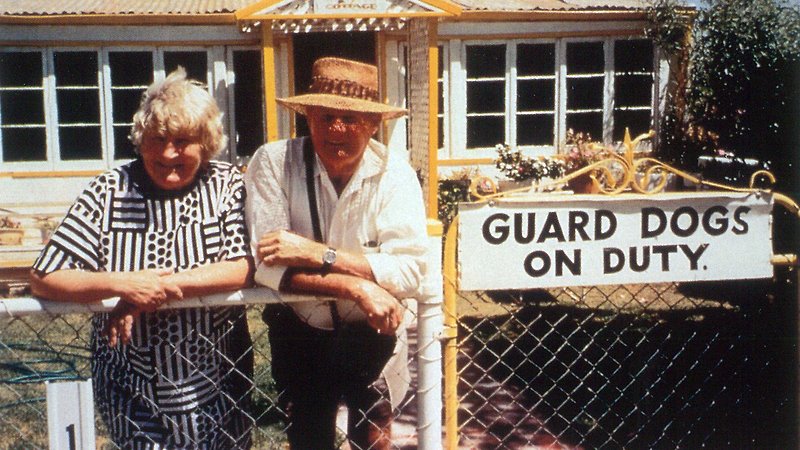
Screened as part of NZIFF 2001
Cunnamulla 2000
Cunnamulla is a tough, sunburnt Queensland town at the end of the train line, 800 kilometres west of Brisbane. It is the setting for a new documentary by the congenitally controversial Dennis O’Rourke. Funny, appalling and graced with a certain awe for its hard-bitten subjects, Cunnamulla never resembles a comprehensive portrait of the town. It is, however, a provocatively coherent one.
Our first glimpse is through the venetians: Neredah, a highly opinionated guide, opens the film as she takes a gawk at some off-screen newcomers. ‘New lot’, she says ominously. ‘They’re paying $65 a week for that place.’ She’s married to Arthur, the driver of what appears to be the only taxi in town. He, too, has his opinions as he shows us the sights, but he’s less vocal than Neredah, an obstreperous advocate of corporal punishment for wayward teens.
Cara and Kelly-Anne, 13-going-on-40, are no less blunt when they discuss the ploys the local boys use to score sexual favours. DJ Marto dreams of getting a band together, although he’s convinced that the town isn’t ready for what he’s got to offer, but damn, it needs to wake up! His girlfriend’s parents aren’t that ready for Marto either. His adoptive father, after introducing us to his electric fans, tends to sit in the kitchen muttering about his druggie son’s wasted life.
There is the briefest glimpse of Aboriginal ruin amongst the film’s general sense of degeneration. Despite being as Australian as corks on a hat, Cunnamulla is awfully recognisable on this side of the Tasman too. O’Rourke clearly has an affinity and affection for the characters he shows. You feel for those old little girls and their premature sour knowledge. — SR
It is a film of close encounters, of an edgy, partial, often revealing intimacy with a small group of subjects… O’Rourke’s focus is on individuals and their relationships. Occasionally we see more than a couple of figures in a frame, and there are fleeting glimpses of events and groups: a funeral, the races, a show, shots of kids in a pool, or riding on a merry-go-round. These shots are carefully composed, pleasing to look at – O’Rourke might be presenting an often bleak vision, but it is also lovingly framed, occasionally dreamlike, suddenly beautiful… This is a film of surprising warmth and generosity, even if there is also a desolation at its heart. — Philippa Hawker, The Age, 8/3/01